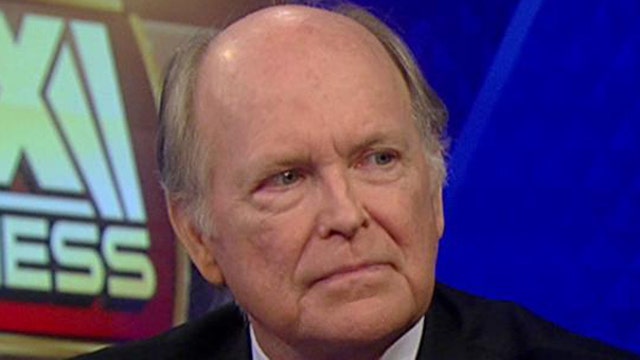Fed's Plosser to FBN: Rates Could Move Higher Sooner
Philadelphia Federal Reserve President Charles Plosser said Tuesday interest rates might have to be raised sooner than forecast if unemployment continues to fall and inflation continues to rise.
In an exclusive interview on the FOX Business Network, Plosser said the Fed needs to be wary of the “unintended consequences” of holding interest rates at near-zero for five and a half years.
Rates should start moving higher “fairly soon,” Plosser said without being specific. He said some criteria used by central banks for raising interest rates suggests rates should move higher in 2014, well ahead of the 2015 timeframe established by the Fed’s policy setting committee.
“We’re much closer to achieving our objectives than we used to be. We’re making progress,” he said.
But rather than using the calendar as a measuring guide, Plosser said the Fed will rely on economic data. And if that data moves faster than the Fed had predicted, central bankers will need to “recalibrate how we’ll make the decision toward liftoff” of interest rates.
Earlier Tuesday in a speech in New York, Plosser said the Fed’s current forward guidance, which it uses to forecast future policy decisions, may be “too passive,” meaning policy makers are underestimating how quickly the economy will reach various thresholds.
Plosser told FBN that recent economic reports show inflation is moving higher and that the Fed needs to “remain vigilant” to ensure it doesn’t surge too high too fast. Although he said he isn’t worried about inflation in the “short-term.”
He also predicted that the unemployment rate, currently at 6.3%, will continue to fall and that the labor force participation rate, a key gauge of the number of working age Americans currently employed, will continue to fall as well as more elderly people retire from the workforce.
Both of those economic indicators will be play key roles in determining the Fed’s timing for raising interest rates.
The Fed lowered the key fed funds rate, the short-term rate banks charge one another, to a range of 0% - 0.25% in December 2008 at the height of the financial crisis.
The Fed is now in the early stages of winding down its unprecedented stimulus polices, tapering its bond purchases and setting the stage for raising interest rates.
There is substantial disagreement among members of the policy-setting Federal Open Markets Committee over the timing of raising rates, with inflation hawks such as Plosser leaning toward sooner and inflation doves led by Fed Chair Janet Yellen advocating a cautious, slower approach.
Plosser said the Fed also needs to keep an eye on asset bubbles, especially in stock markets.
Asset bubbles are an inevitable consequence of long-term easy-money policies and some analysts have suggested stock markets have soared into record territory due to the Fed’s accommodative strategies.
“Bubbles are very hard to identify, particularly in advance,” Plosser said.
Plosser said he’s optimistic the housing sector will “continue to trundle along,” gradually gaining momentum.




















